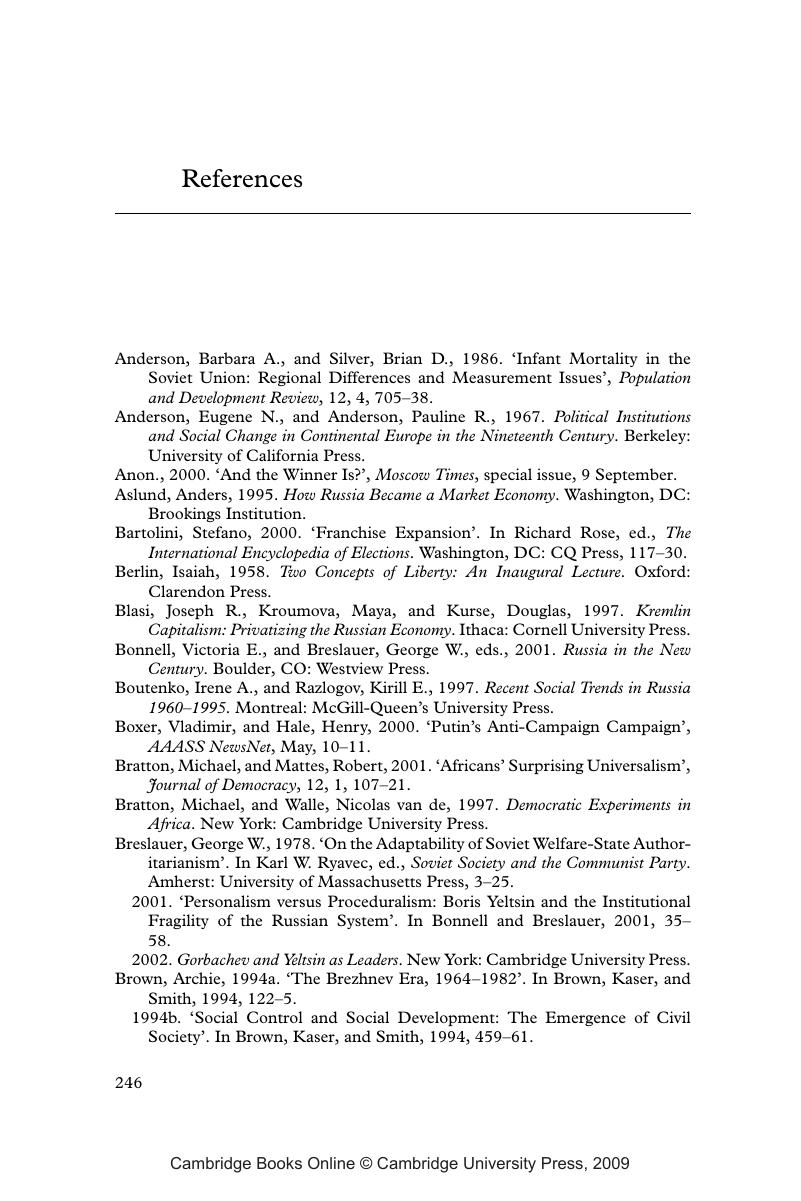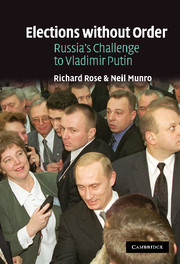Book contents
- Frontmatter
- Contents
- List of figures
- List of tables
- Introduction. The reality of Russia
- 1 A disorderly legacy
- 2 Democratization backwards
- 3 What Russians have made of transformation
- 4 Presidential succession: a Family problem
- 5 Parties without accountability
- 6 A floating system of parties
- 7 Impact of transformation on Duma voters
- 8 From acting to elected president
- 9 Campaigning and governing
- 10 In search of an equilibrium
- Appendix A New Russia Barometer samples
- Appendix B Coding of independent variables
- References
- Index
- References
References
Published online by Cambridge University Press: 22 September 2009
- Frontmatter
- Contents
- List of figures
- List of tables
- Introduction. The reality of Russia
- 1 A disorderly legacy
- 2 Democratization backwards
- 3 What Russians have made of transformation
- 4 Presidential succession: a Family problem
- 5 Parties without accountability
- 6 A floating system of parties
- 7 Impact of transformation on Duma voters
- 8 From acting to elected president
- 9 Campaigning and governing
- 10 In search of an equilibrium
- Appendix A New Russia Barometer samples
- Appendix B Coding of independent variables
- References
- Index
- References
Summary

- Type
- Chapter
- Information
- Elections without OrderRussia's Challenge to Vladimir Putin, pp. 246 - 258Publisher: Cambridge University PressPrint publication year: 2002



